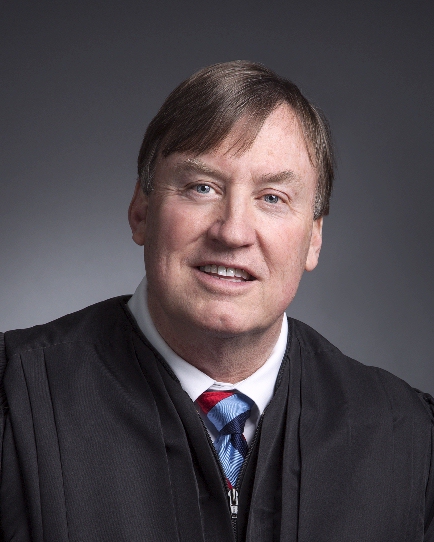Justice David Bridges, a 24-year veteran of the Fifth District Court of Appeals in Dallas, died late Saturday night, a victim of a crash with an apparent drunken driver.
A graduate of the Texas Tech School of Law, Justice Bridges was driving westbound on Interstate 30 near Royse City when his vehicle was struck by a car driven by a 32-year-old who was driving in the wrong direction.

“We are stunned and heartbroken by this news,” said Justice Ken Molberg, a fellow judge on the Dallas Court of Appeals. “We couldn’t have asked for a better public servant or a finer gentleman as a colleague.”
Police reports state that Justice Bridges died at the scene of the crash. The woman, Megan E. Smith, who has been charged with manslaughter, received minor injuries.
Leaders of the Texas appellate bar said that they were deeply saddened by the news of the death of Justice Bridges, who was the longest-serving justice on the Dallas Court of Appeals.
“He was a highly-esteemed judge and had a wonderful demeanor – always friendly, kind, and wore a big smile,” said Anne Johnson, an appellate law expert and partner at Haynes and Boone in Dallas.
“In court, he was fair and respectful, and could be counted on to bring some levity to the proceedings when appropriate,” Johnson said. “And his opinions reflected those same qualities.”
Johnson said that Justice Bridges “was known for his expertise in criminal law … but he also authored hundreds of important and complex opinions in civil cases over his 24 years on the Dallas Court of Appeals.”
Born in Fort Worth, Justice Bridges’ family roots in East Texas date back to 1839.
After serving in the U.S. Army in 1973 and 1974, Bridges paid his way through college at the University of Texas at Tyler by working at the General Electric plant.
Bridges joined the Smith County District Attorney’s office in 1984 after graduating from Texas Tech with his law degree. In 1987, he joined the Upshur County DA’s office as a prosecutor. And he spent a year as the first assistant in the State Bar of Texas Disciplinary Counsel’s office.
After practicing criminal defense law for four years, he was elected to the Dallas Court of Appeals in 1996.
Justice Bridges was up for re-election this November and he faced stiff competition from Dallas District Judge Craig Smith.
“Justice Bridges and I had several different views on things, but it was always a pleasure to appear before him because he had a great judicial temperament,” said Chad Baruch, an appellate law partner at Johnston Tobey Baruch. “He was a very nice guy and this is incredibly sad news.”
David Coale, an appellate law partner at Lynn Pinker Hurst Schwegmann, said that Justice Bridges “emerged as a spokesman for the Republican-now-minority” after Democrats took control of the Dallas Court of Appeals in 2018 with “collegial and well-written dissents.”
“He was always kind and gracious in argument [and] his opinions always thorough,” Coale said. “He just seemed to really enjoy public service as a judge.”
Chad Ruback, a Dallas appellate law specialist, said Justice Bridges “had a stellar reputation.”
“He was hard working, which was evident at oral argument and in the opinions he authored,” Ruback said. “He had a reputation of being extremely fair. This reputation was earned over 24 years of fairly calling balls and strikes, without regard to the identity of the lawyers or of the parties.
“By the questions he asked at oral argument, it was obvious that he spent a lot of time before argument studying the briefs, the record and the relevant legal authority,” he said.
“He generally didn’t ask the most questions at oral argument or the least. He always seemed to ask a handful of questions, and those questions were invariably insightful.
